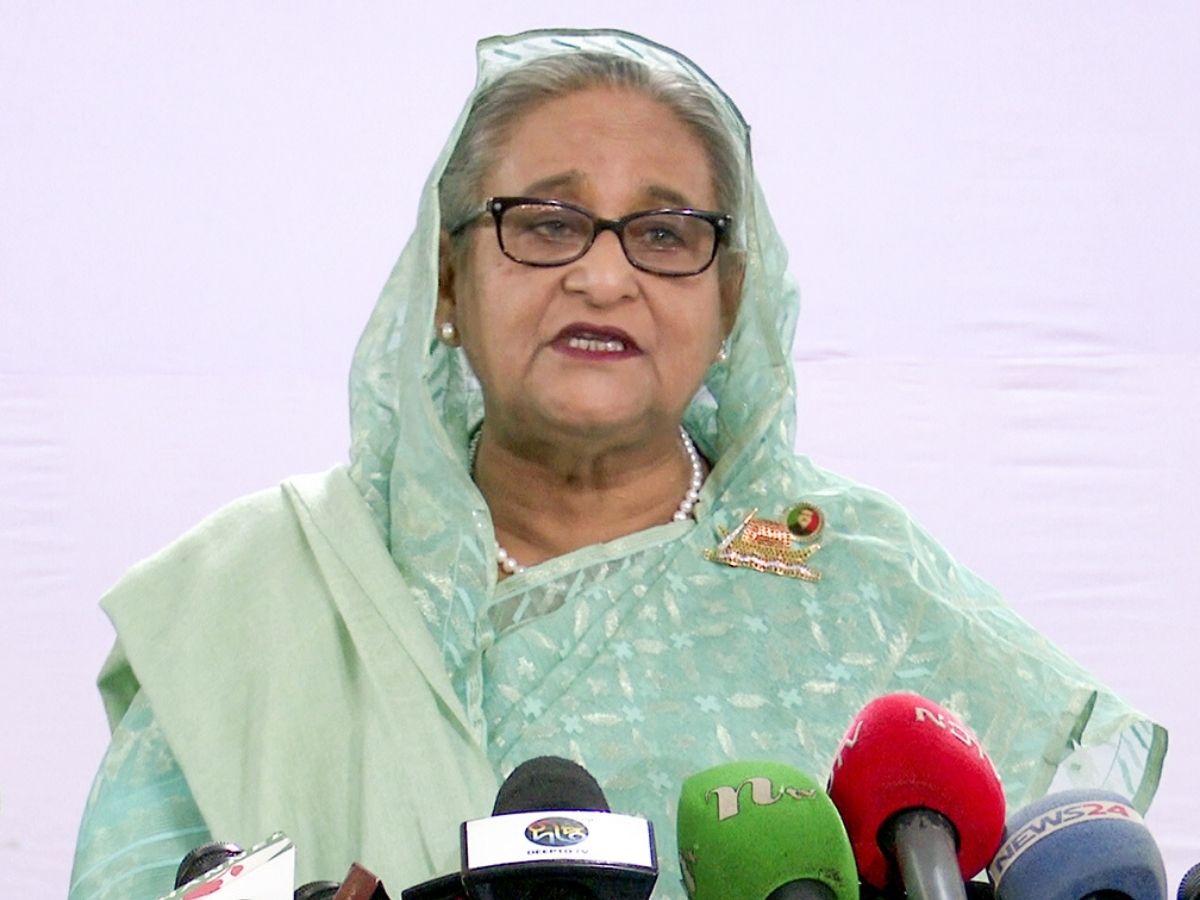The long-anticipated trial of former Bangladesh Prime Minister Sheikh Hasina began in Dhaka over the weekend, almost exactly a year after her government was toppled by mass protests. Hasina, reports suggest, is being tried in absentia by the International Crimes Tribunal (ICT), a court she created during her tenure in office. Here’s what we know so far about what has happened, its potential implications and what could happen next.
What Charges Is Sheikh Hasina Facing?
Hasina is facing charges of crimes against humanity, including murder, torture, conspiracy, incitement, and abetment during the July 2024 uprising in the South Asian country, which reportedly left over 1,400 people dead, including children.
Eleven-year-old Rakib Hossain, who was reportedly shot dead in Dhaka, is among the victims of the unrest, the report said. His father, Abul Khayer, while speaking with The Guardian recently, expressed frustration, saying, “I want to see Hasina tried in person. She should face the families and answer for what she did.”
How Has Sheikh Hasina Reacted To Allegations?
Hasina, who is known to be residing in India since August 2024, has refused to participate in the trial proceedings except to plead not guilty. A state-appointed lawyer is representing her.
Rejecting the legitimacy of the court trial, she had recently said in an open letter that the protests were “a violent interruption of our hard-fought democracy”, and that she
would “reclaim the institutions that were unlawfully seized,” as reported by The Guardian.
Meanwhile, Mohammad Arafat, a former minister in her cabinet at the time, has called the case a “political show trial,” reportedly saying, “The Awami League categorically rejects the politically motivated charges… It’s a tool to criminalise political opposition.”
What Has the Prosecution Said?
Chief prosecutor Mohammad Tajul Islam stated that gathering evidence had been difficult due to the “destruction of records” and the alleged involvement of powerful individuals. “It is critical for accountability and the rule of law, and also for the victims who seek justice,” he said, per the media network.
A key witness for the prosecution is former police chief Chowdhury Abdullah al-Mamun, who has pleaded guilty and is expected to testify against Hasina.
Questions Around the Tribunal and Future Cases
Some opponents, including exiled academic Mubashar Hasan have argued that Hasina should be tried by the International Criminal Court in The Hague amid widespread concerns about the independence of Bangladesh’s judiciary despite recent reforms.
Chief prosecutor Islam, however, has insisted that the ICT now adheres to international standards and that Hasina’s absence “should not shield her from justice.”
What’s Next in Sheikh Hasina’s Trial?
Since Hasina’s ouster, Muhammad Yunus-led interim government has struggled to deliver the democratic reforms it promised. With elections expected in early 2026, the Awami League has been banned from contesting, drawing criticism for “undermining pluralism”.
New political forces, though, have emerged, including the National Citizen Party (NCP) led by student activists. Joint Convener Tajnuva Jabeen recently told news agency ANI, “We want fundamental reforms. The Prime Minister had become like a king. That must change.”
The NCP is advocating for proportional representation, judicial independence, and a referendum-based July Charter to shape the new political order.
“We cannot expect an overnight transformation from autocracy to democracy,” Jabeen reportedly said, stressing, “But the process has started.”
The trial is being broadcast live, except for protected testimonies, and many in Bangladesh see it as a crucial first step toward justice.
“I don’t need her to sit in a dock to know what she did,” The Guardian quoted Khayer as saying. “Let the world hear it.”
ALSO READ: From Shelter to Shackles: Pakistan Withdraws Legal Status from Over a Million Afghans







